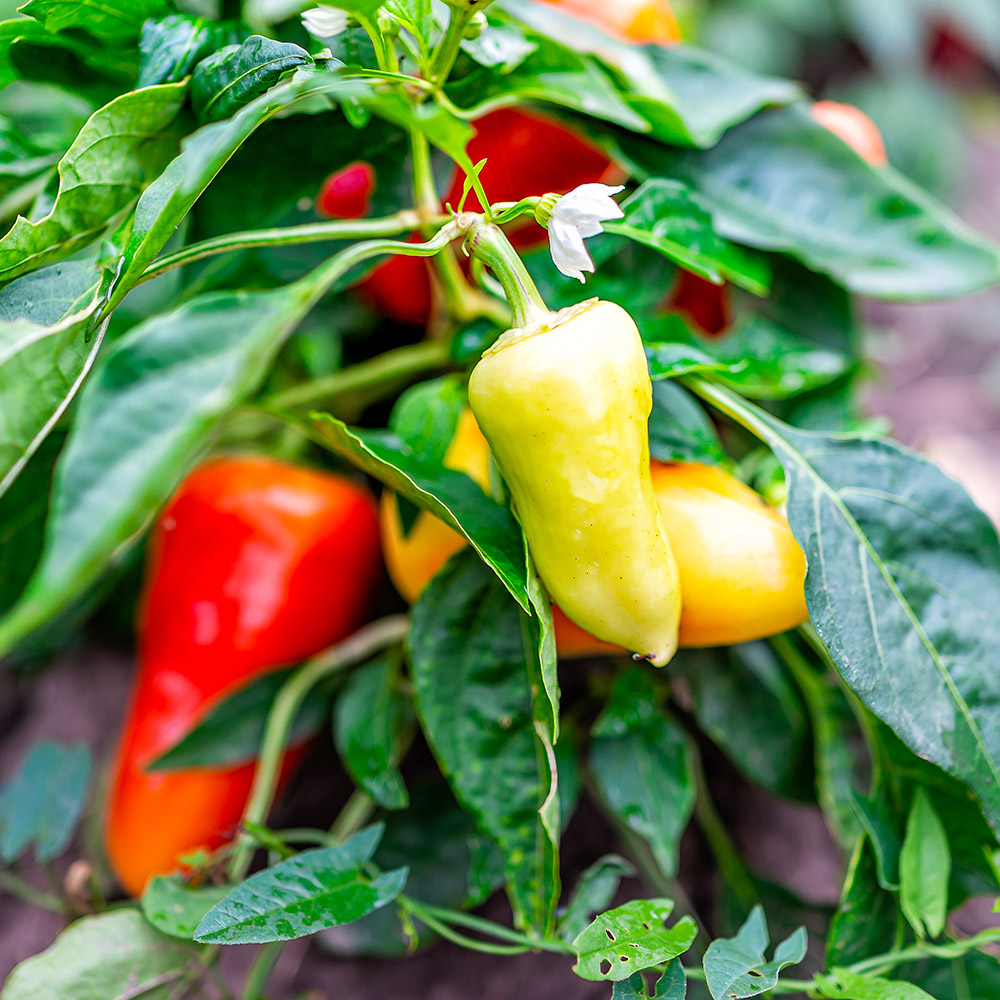Best Fertilizers for Peppers: Maximize Plant Health and Yield
Best Fertilizers for Peppers: Maximize Plant Health and Yield
Blog Article
Organic Vs. Synthetic Fertilizers: Which Is Best for Nurturing Healthy Pepper Plants?
In the realm of supporting healthy and balanced pepper plants, the option in between organic and artificial plant foods stands as a crucial choice with far-ranging effects. While both alternatives objective to provide crucial nutrients to sustain plant development, the nuances of their influence on the dirt, plant wellness, and the atmosphere stimulate a debate that echoes throughout the gardening area. Understanding the unique advantages and prospective mistakes of each fertilizer kind is essential for pepper growers looking for to optimize their returns while keeping a lasting and eco-conscious strategy.
Advantages of Organic Fertilizers
Organic plant foods provide an environmentally-friendly and lasting strategy to nourishing pepper plants, offering essential nutrients without the usage of artificial chemicals. These natural plant foods are originated from natural resources such as compost, manure, bone dish, and algae, promoting dirt wellness and biodiversity. Unlike artificial plant foods, organic options release nutrients gradually, guaranteeing a consistent and well balanced supply for pepper plants to grow.
One considerable advantage of natural fertilizers is their ability to boost dirt structure and water retention. By enhancing dirt health and wellness, natural fertilizers advertise valuable microbial activity, which assists in nutrient uptake by pepper plants. Furthermore, organic fertilizers minimize the danger of chemical run-off, securing water sources from pollution and guarding the atmosphere.
In addition, natural fertilizers contribute to long-lasting dirt fertility by promoting the development of advantageous soil microorganisms. These microorganisms aid break down organic matter, releasing nutrients in a type that is quickly available to pepper plants. best fertilizers for peppers. By cultivating a healthy soil ecosystem, natural plant foods support lasting pepper farming methods that benefit both plants and the setting
Downsides of Artificial Fertilizers
Synthetic fertilizers, unlike their natural counterparts, position various drawbacks when utilized to nurture pepper plants, affecting both plant health and wellness and ecological sustainability. One major downside of synthetic fertilizers is their propensity to seep nutrients from the soil quickly. This quick leaching can cause vitamins and mineral discrepancies in the dirt, causing plants to endure from poisonings or deficiencies. Additionally, synthetic fertilizers can damage beneficial dirt organisms, such as earthworms and helpful germs, disrupting the dirt ecosystem's equilibrium.
In addition, the overuse of artificial fertilizers can add to water pollution. Excess fertilizers not taken in by plants can get rid of right into water bodies, causing eutrophication, where algae flowers diminish oxygen degrees in the water, harming water life. Additionally, synthetic plant foods are typically acquired from non-renewable resources, such as nonrenewable fuel sources, adding to carbon emissions and ecological degradation during their production.
Nutrient Absorption Comparison
When contrasting organic and artificial fertilizers in terms of nutrient absorption, natural plant foods have the benefit of providing a more balanced and slow-release source of nutrients. Organic plant foods contain a selection of macro and trace elements that are not just beneficial for the plants yet additionally promote healthy soil microbial activity, visite site which assists in nutrient uptake.
In addition, natural fertilizers boost dirt framework and water retention capability, allowing pepper plants to accessibility nutrients a lot more successfully. This better soil quality promotes origin advancement, enabling better nutrient absorption. Synthetic plant foods, although initially improving plant development because of their high nutrient focus, may impede long-term nutrient absorption by degrading dirt wellness gradually.
Ecological Effect Factors To Consider

On the other hand, artificial fertilizers, although usually more focused and right away available to plants, can have destructive impacts on the atmosphere otherwise applied properly (best fertilizers for peppers). Their production calls for high power inputs, resulting in greenhouse gas emissions and adding to environment modification. Furthermore, the runoff of excess artificial fertilizers can pollute water resources, causing eutrophication and damaging aquatic ecosystems.
Finest Fertilizer Practices for Peppers
To accomplish this, it is necessary to adhere to best plant food practices customized to the particular demands of pepper plants. One critical practice is to do a soil test prior to using any plant foods.
Another vital practice is to feed pepper plants at the correct time. Normally, peppers benefit from obtaining fertilizer at planting and after that once more when they start to flower. Over-fertilizing can result in nutrition discrepancies and harm the plants, so it is essential to adhere to suggested application prices.
Furthermore, picking a balanced plant food with an NPK ratio that fits pepper plants' requirements is essential. Inevitably, integrating natural and artificial plant foods deliberately can help nurture healthy and balanced pepper plants while reducing environmental impact.
Conclusion

Organic plant foods use a sustainable and environmentally-friendly method to beneficial pepper plants, providing essential nutrients without the usage of synthetic chemicals. Unlike synthetic plant foods, natural choices launch nutrients slowly, ensuring a balanced and stable supply for pepper plants to thrive.
Artificial plant foods, in contrast to their natural equivalents, present various negative aspects when utilized to nurture pepper plants, affecting both plant wellness and ecological sustainability. When comparing artificial and natural fertilizers in terms of nutrient absorption, organic fertilizers have the advantage of providing a much more balanced and slow-release source of nutrients.In addition, organic fertilizers improve soil framework and water retention ability, index allowing pepper plants to accessibility nutrients more effectively.
Report this page